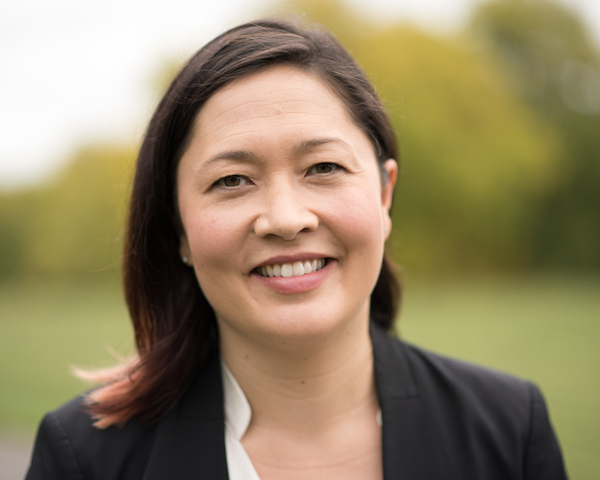This is a profile from the 2020 version of the DataIQ 100.
The 2021 list is available here
Christine Foster, CCO, The Alan Turing Institute

Path to power
I’ve been fortunate that following my interests and my curiosity has helped my career. My first job was at Bain & Company, where I learned a tremendous amount about business strategy and change management. After INSEAD, I moved to New York to help turn around the music industry. I didn’t manage to fix it all, but we built a data mash-up and dashboard when Hadoop was new. MySpace was where the fans were, and media mix models weren’t a standard ad agency offer. It wasn’t called data science back then, but it was the beginning of data science.
I went on to learn from the excellent decision scientists at American Express and built a diverse team of statisticians, business analysts, risk modellers, and technologists. After that, I A/B-tested my way up the growth curve at a fintech start-up, taught myself a little coding with a lot of copy-pasting from more experienced coders, and moved to London.
Here, I’ve followed my curiosity once again, assembling an extraordinary team at the Turing Institute, who are creating the future of data science and artificial intelligence. I’m enjoying the value of seeing the many possible futures, given my intense implementation background.
What is the proudest achievement of your career to date?
I love it when existing ideas come together in novel ways. My habit of reading and learning broadly will usually, eventually, bring me a useful concept or expert.
I had a major achievement at Amex, using ideas I had learned outside of data and analytics. My team booked a billion-dollar-a-year win when we reframed a supposedly intractable problem by changing the question. Without divulging any confidential information, that one suite of algorithms was good for consumers, delivered double-digit improvements to the P&L, year in and year out, and pieced together existing technology in a novel way.
Who is your role model or the person you look to for inspiration?
Itzhak Perlman, the violinist. He works hard, every day, to perfect his craft so he can effortlessly move an audience. He can also be goofy, like using a kitchen blender to play a tune. What I’ve learned from watching him: “Work hard because it’s fun to be good at it.”
Did 2019 turn out the way you expected? If not, in what ways was it different?
2019 was full of surprises and uncertainty for us all. Enough said. Let’s have a fresh start with 2020.
What do you expect 2020 to be like for the data and analytics industry?
The practice of data and analytics has been growing up over the last 20 years, and I expect 2020 to be the year this shines through. The Turing Institute and other leading research institutions are at the heart of many exciting new collaborations that will push the boundaries of science for social good.
What we know from our work is that it takes experts from many different fields to deliver improvements: mathematicians, ethicists, statisticians, lawyers, social scientists, computer scientists and more. Similarly, I predict companies will be building data science teams with more breadth and balance across skills, experience and backgrounds.
Data and technology are changing business, the economy and society – what do you see as the biggest opportunity emerging from this?
The biggest opportunity is going to be a deep and meaningful collaboration between people and technology. As we build trusted automated systems for use in our lives, the best implementations will demonstrate explicit and nuanced understanding of systems’ strengths and limitations, as well as human experts’ strengths and limitations.
There’s a wonderful scene in the film Hidden Figures, where astronaut John Glenn refuses to launch until Katherine G Johnson, a “computer” at NASA, had checked the orbit calculations done by the IBM 7090 machine. That was 1962. I wonder what kind of story will surprise us in 2062.
What is the biggest tech challenge organisations face in ensuring data is at the heart of their digital transformation strategy?
The biggest challenge organisations face with data is that it is incomplete or not representative. There is better awareness of the need for greater equality, diversity and inclusion. We are in a moment where new technologies and innovation could help us better understand and address these longstanding societal issues, if we get the data right. For better data science and artificial intelligence, organisations are going to need open or accessible data-sets that better represent the world being analysed or modelled.
DataIQ is a trading name of IQ Data Group Limited
10 York Road, London, SE1 7ND
Phone: +44 020 3821 5665
Registered in England: 9900834
Copyright © IQ Data Group Limited 2024